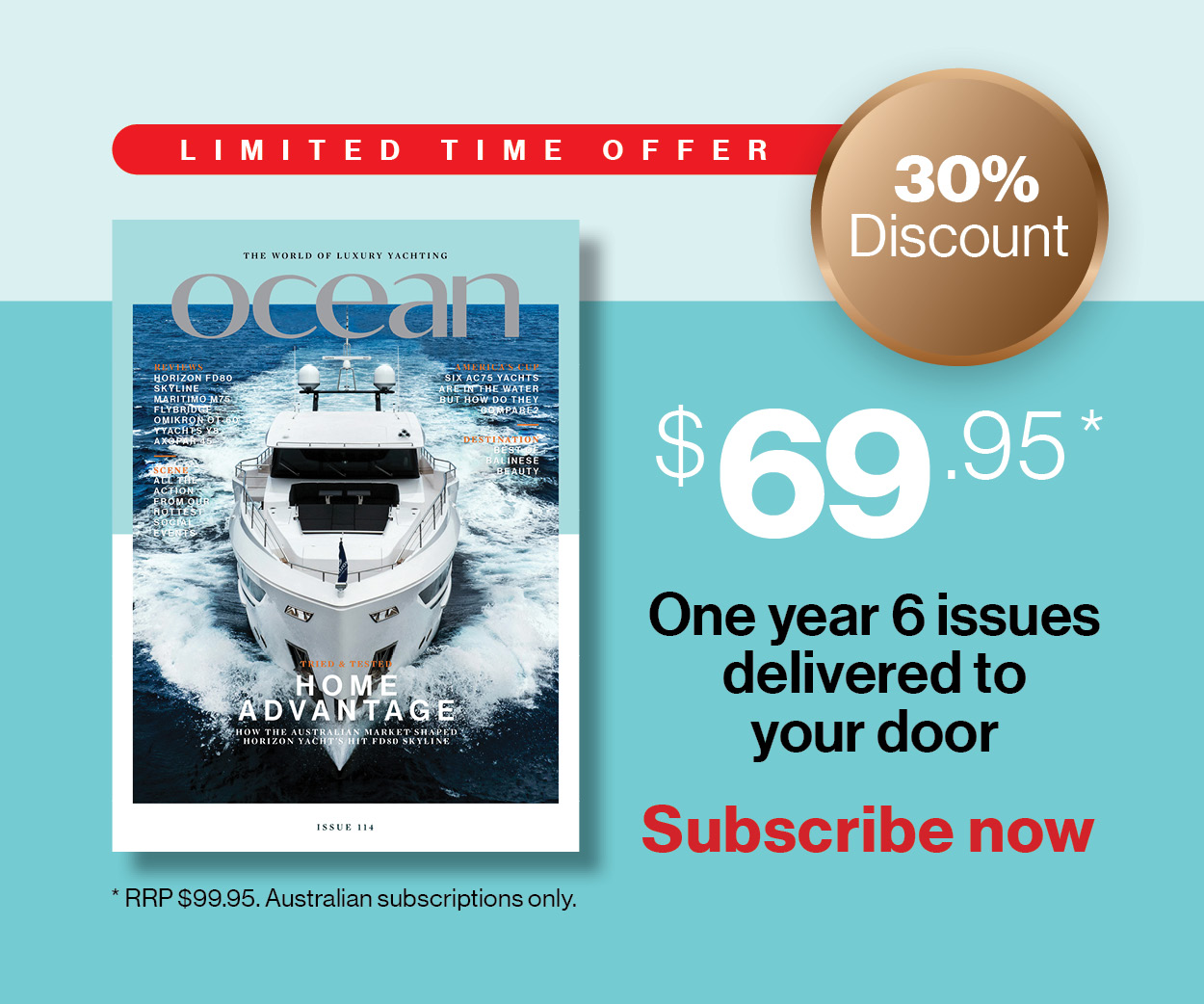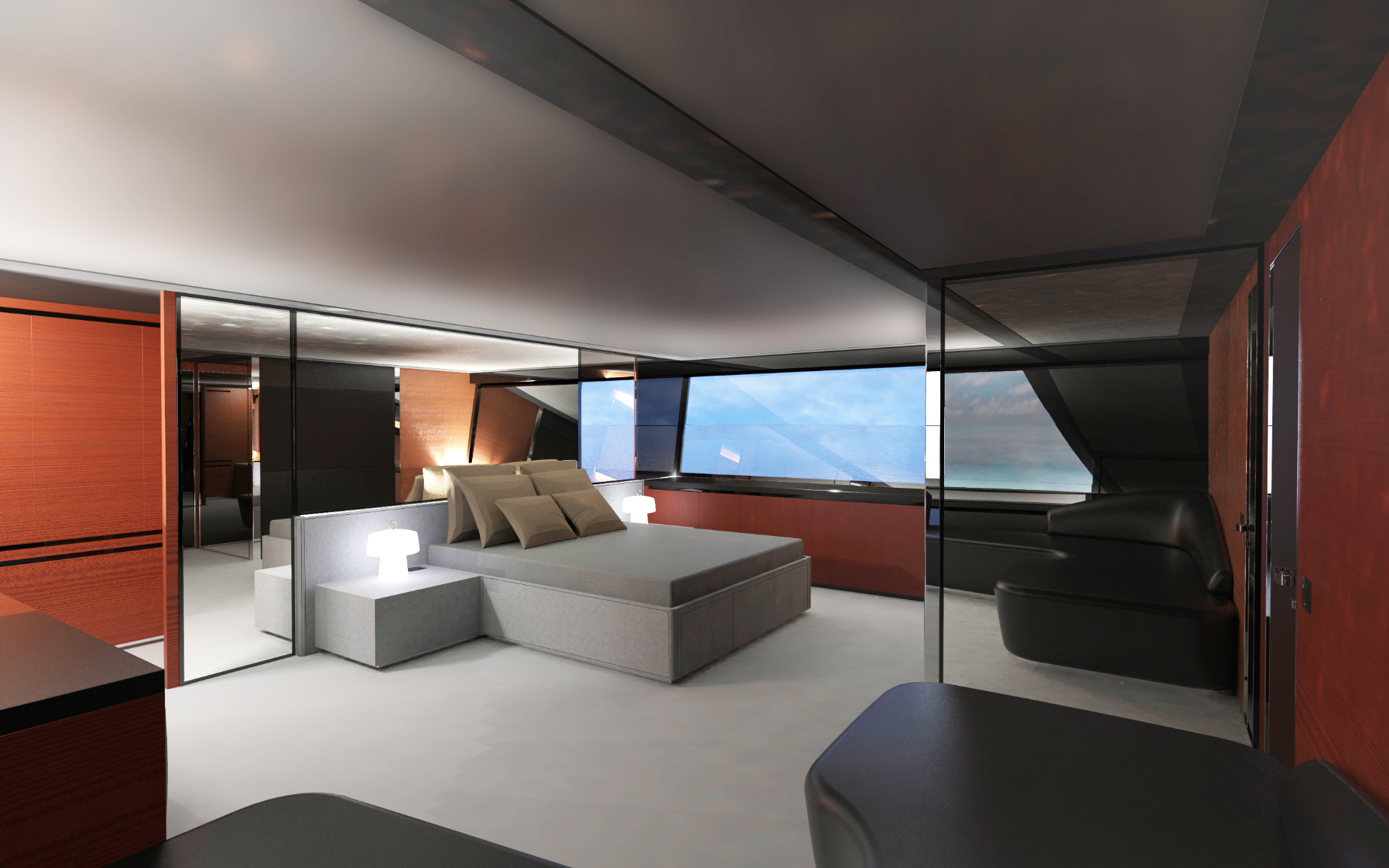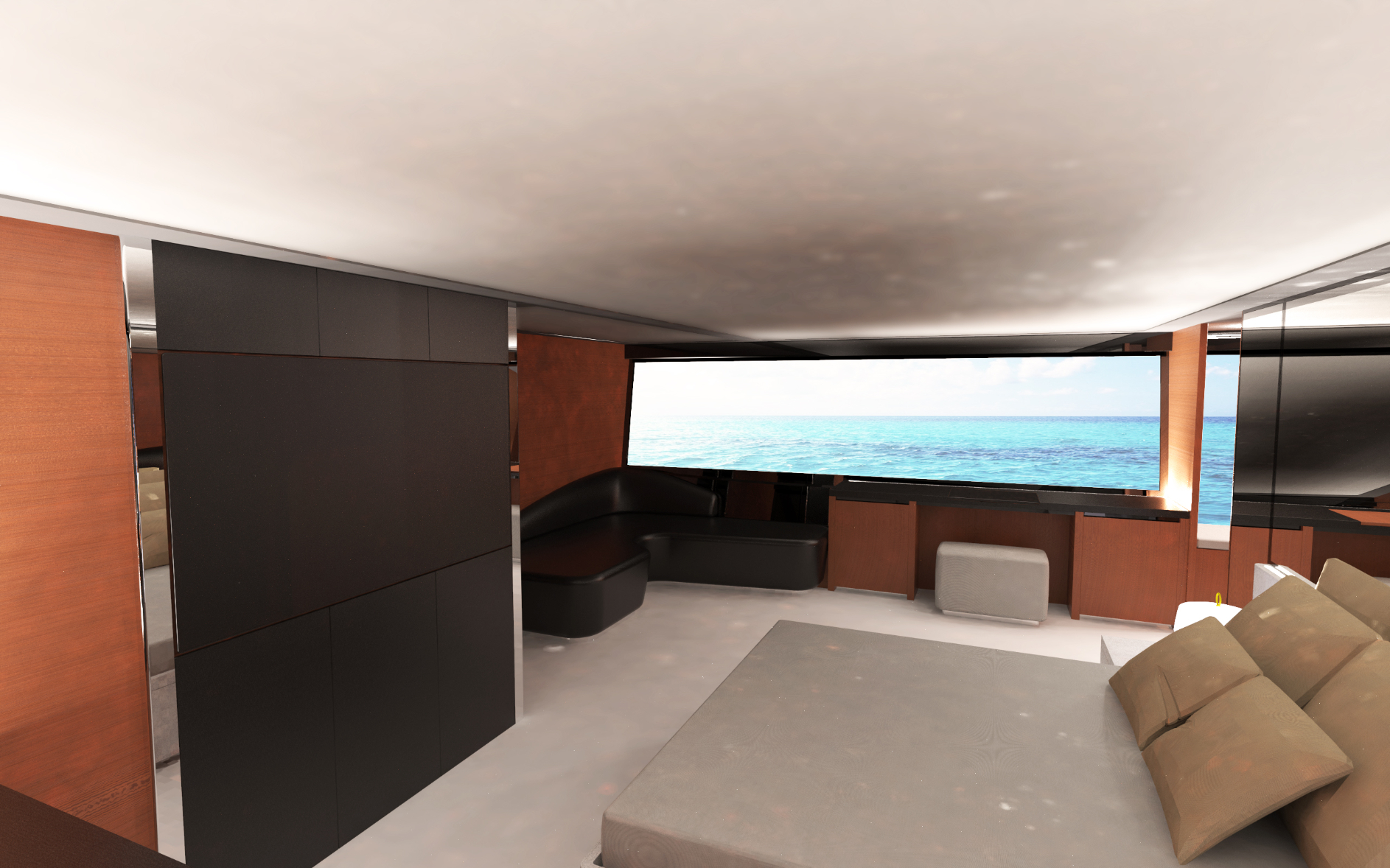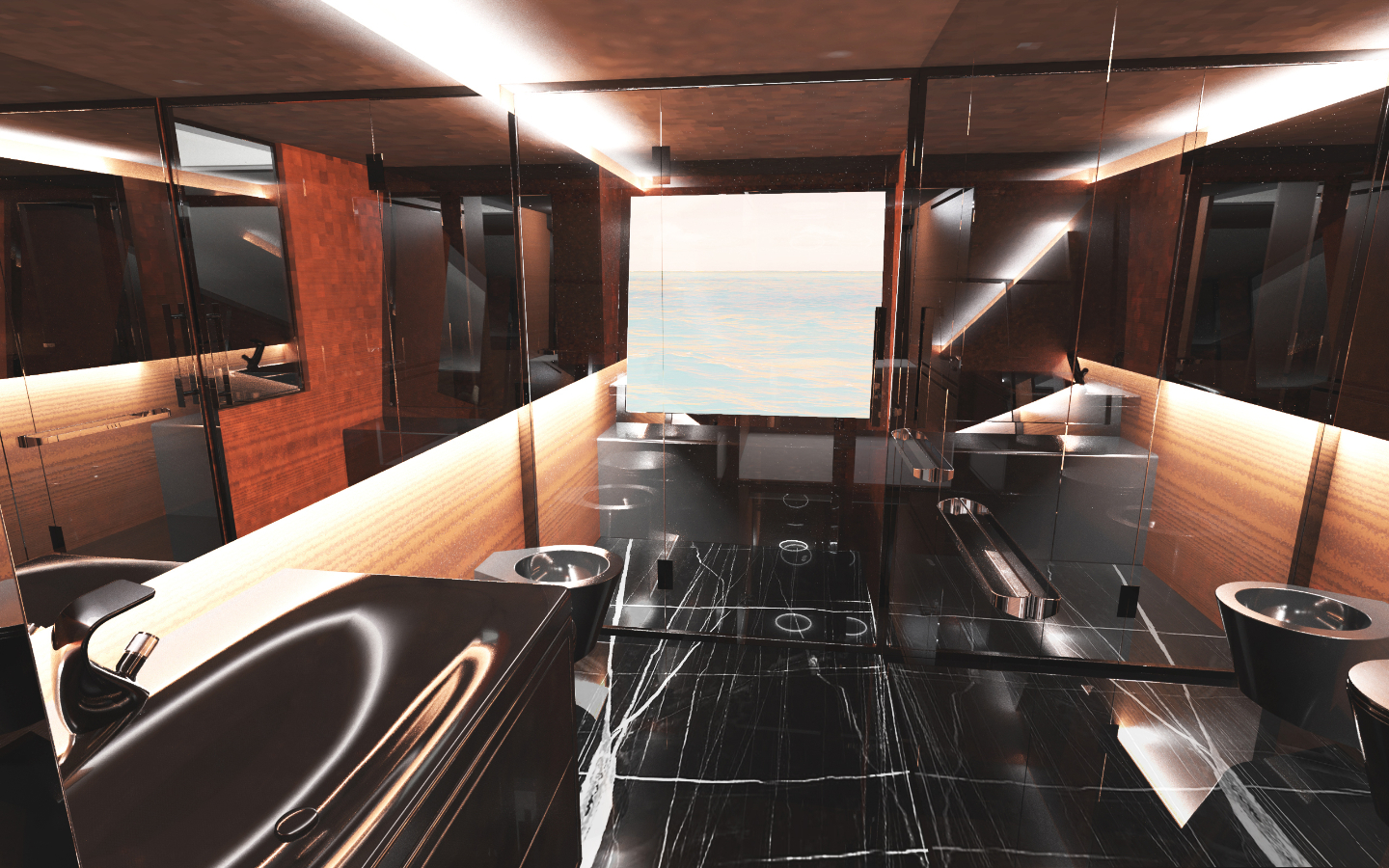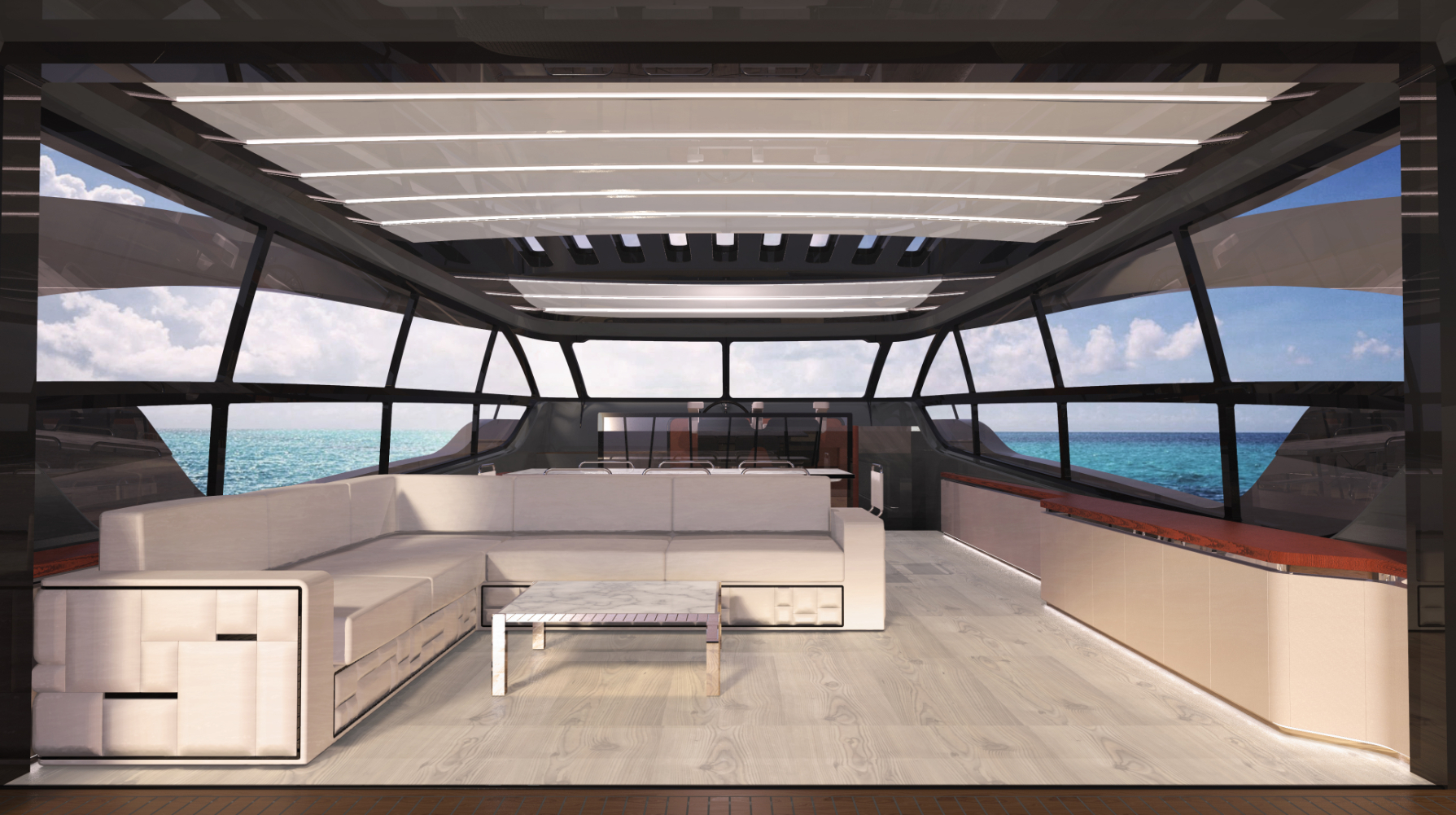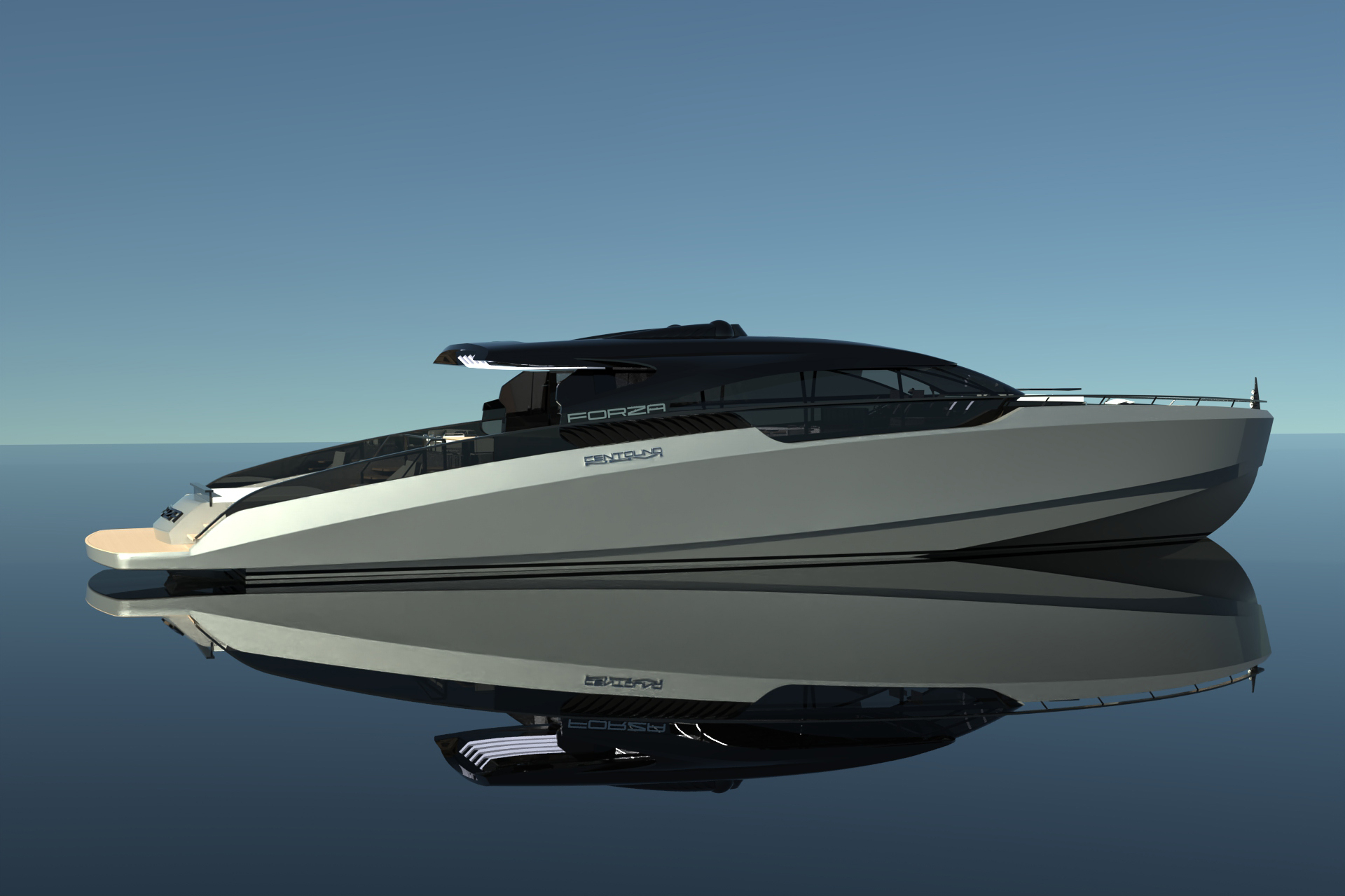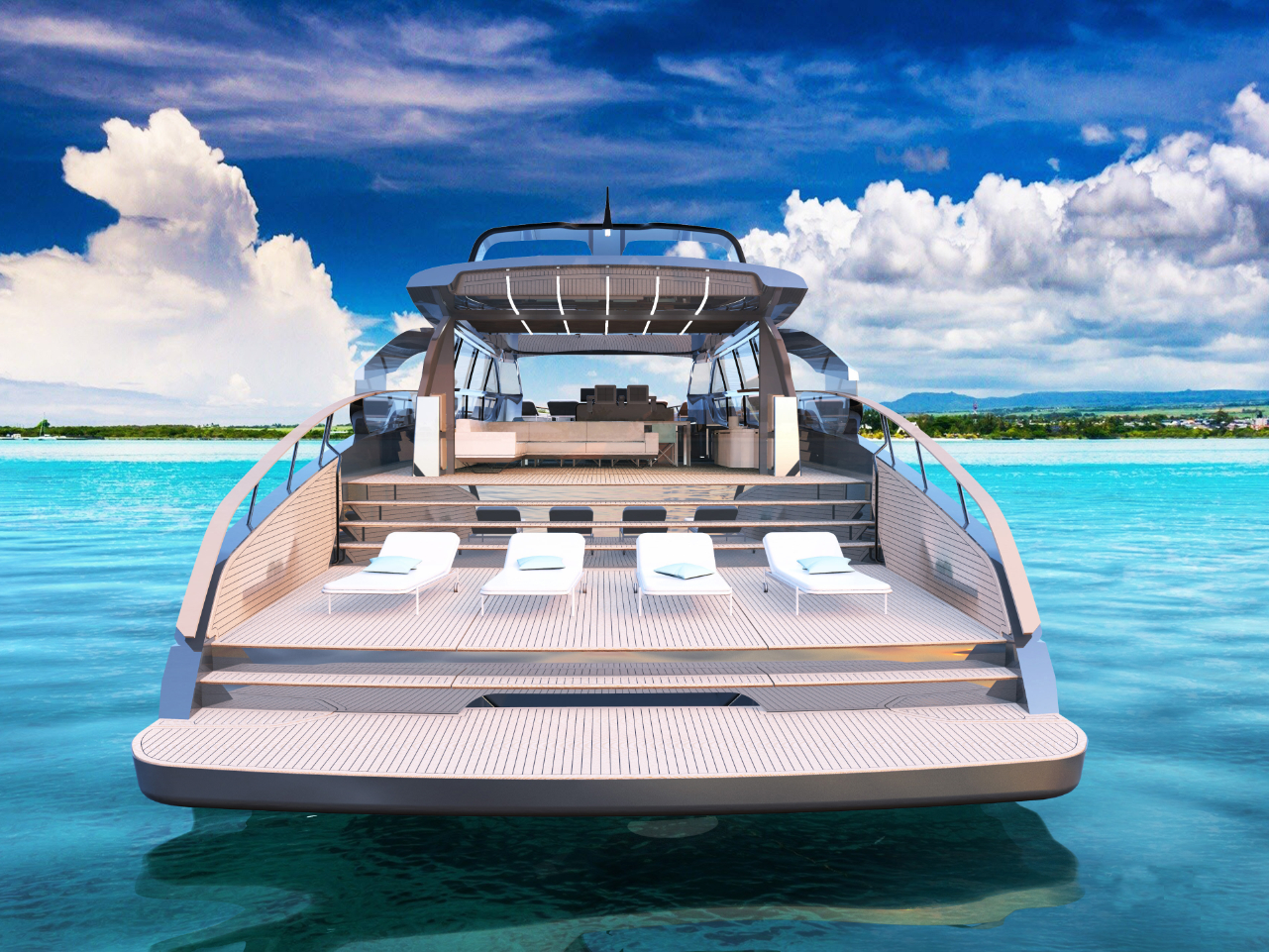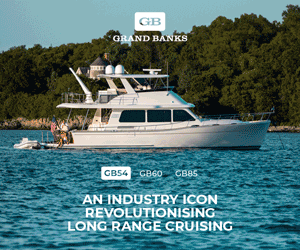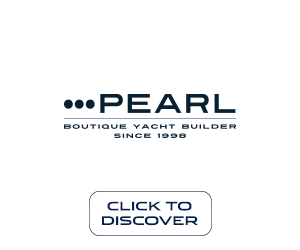Eco express
Centouno Navi’s FORZA day cruiser will be capable of 60 knots and feature eco-friendly materials in its construction.
21 September 2022
Centouno Navi, the new superyacht brand set up by designer Manuela Lucchesi and naval architect Marco Arnaboldi, has revealed further details about its 28-metre FORZA model.
Capable of 60 knots, the stylish day cruiser is proof that fast can also be green. The low-resistance hull form, for example, has been designed for high performance combined with high efficiency.
Three MAN 12V 2000 hp engines coupled with next-generation MJP waterjets as well as sandwich composite construction result in a yacht that is 30 percent lighter than its competitors with CO2 emissions that are 50 percent lower.
The efficiency of both the hull design and propulsion system means that with 9,500 litres of fuel, FORZA has an incredible range of 500 nautical miles at a cruising speed of 50 knots.
But that’s not all. The choice of eco-friendly materials for the custom interior outfitting can save the equivalent of 20 trees and most of the materials are fully recyclable.
“Centouno Navi is all about respect for the sea,” said Lucchesi. “The design and engineering of Forza is the result of the combined experience of the brand founders, who have lived by the sea and on boats all our lives.”
The naval architecture and build methodology draws on naval architect Marco Arnaboldi’s former experience as Founder and Director of his own shipyards, since 1992 apply cutting-edge waterjet technology and sandwich composite construction to fast planing yachts.
“I’ve been building boats for more than 30 years and I know what owners want,” said Arnaboldi.
“Speed and efficiency are often at the top of the list because it means they can cover more ground in less time and do it with minimal environmental impact.”
The hull construction uses carbon and glass fibre in a hybrid sandwich with vinylester resin and a high-density PVC foam core, which provides a lighter, stronger structure with optimal mechanical properties.
Careful control of the turbulent boundary layer (TBL) around the hull means less drag and better lift too.
The advantages of waterjet propulsion over conventional drive shafts and propellers are well known: higher speed, faster acceleration, shallow water capability, greater manoeuvrability, less noise and vibration, as well as lower maintenance and longer engine life.
The fact there are no rotating parts under the water also makes them safer than conventional props – something that was made abundantly clear to Marco and Manuela some years ago when driving a fast waterjet boat at nightfall near Mallorca.
“Suddenly we felt a bump and Marco shouted, thinking we’d hit a floating container,” recalled Lucchesi.
“We ran at the stern of the boat and saw a sperm whale emerge from our wake. We were very concerned for her well-being so after checking for water ingress, Marco circled the whale to check she was okay.
“We were relieved to see she looked fine. If we had been in a boat with props we would likely have been sunk and killed or badly wounded the whale.”
The dynamic profile and deck layout is based on fast shadow boats with a sleek superstructure, open transom and elongated bow.
The large terraced aft deck features a fixed swim platform, a large sun bed (with room for stowing a tender underneath) and fold-down bulwarks. There’s another wide sun bed on the foredeck.
Under the enclosed hardtop is a comfortable saloon with sliding glass doors overlooking the aft deck, a dining area and the pilot station.
The guest accommodation below deck comprises four cabins: a full-beam owner’s suite amidships, a VIP suite forward and two twin-single cabins (two crew cabins can be accessed independently from the bow). The interior can also be customised according to client preference.
A unique feature that offers a new way of living at sea is the windscreen in front of the helm station, which can be opened to provide unrestricted access from the foredeck all the way to the stern.
The Centouno Navi series also includes 39-metre ETEREA, the big sister of FORZA and a full tri-deck superyacht.


